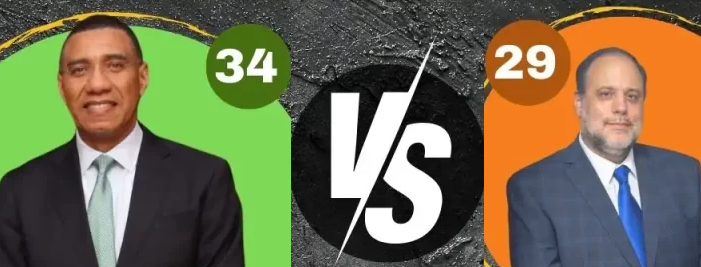The lies people will tell in order to get their point across never ceases to boggle the mind. Persons lie about sexual partners, they lie about their wealth and they lie about their various achievements. But the worst thing a person can do is use a lie, or use misleading statements aided by weighty titles — and I deliberately say mislead as they may very well believe the statements and pronouncements — to further an already disproved theory and tactic, even if it is the easiest to reach for.
A recent piece in a local paper sought to make us see that the only way for the country to curb its crime rate is to go back to the old days of the ACID squad, the CMU and even the days when the Suppression of Crime Act was in vogue. The writer sought to tell us that in the days of those squads and legislation crime was at a lower level, that there were successes and that the only reason crime is now at the rate where it is today is because of wishy-washy bleeding hearts who don’t have time for tough policing.
I do not like to make pronouncements against persons who have studied in the field of which they speak or write, I only question because in my unlearned mind some things don’t make sense.
The Suppression of Crime Act was repealed in 1993 after its introduction in 1974. The number of murders in 1974, from what I can gather, was 195. When the Government changed in 1980 murders had skyrocketed to 899. Ok, we can chalk it off to an almost civil war, but during 81-89 the murder toll never once dropped below 300 let alone pre 1974 numbers. In fact, it topped out at 484 (84) and at its lowest was at 414 (88) and when the Suppression of Crime Act was repealed (after another transition of power) it was somewhere north of 600.
It would seem to me that the policing of the 1970s did not work, the Suppression of Crime Act failed to do what its name intended and instead crime flourished (aided by politicians and businessmen and that is the key).
The CMU was formed in 2000 and disbanded in 2003; it just so happens that the murder toll for 2000 was 887. When it was disbanded the toll was 975, this after topping out at 1,045 in 2002 (an election year).
It seems to me that, much like the 1970s, this form of hit squad hasn’t worked as it relates to curbing crime. It doesn’t work, or rather hasn’t worked, and there are reasons for that which I fear the article did not address.
No amount of tough policing is going to stop billionaire bob from running drugs if, say, the politicians are okay with it. The tough police won’t go after their Supt. who is in league with gunmen, they don’t go after those who traffic persons or import illegal contraband and counterfeit contraband. They don’t go after them because they aren’t trained for it, they are hammers and so everything becomes a nail.
I am not here saying that there is no need for tough policing, there is always that need as some criminals need to be dealt with harshly. But if, after some 40+ years of tough policing alone, we have only seen the murder rate skyrocket then we must admit that by itself it doesn’t work. Yes, it is sexy; yes ,it get everyone talking; and yes, it yields tangible and immediate results but as we have seen, those results by themselves are ephemeral and when they are lost the people who have become accustomed to tough policing (the easy option) bawl out for more.
What is needed is obvious and much ink has been wasted in both newspapers, think tanks and government circles on how to deal with crime and most, if not all, have hit upon what should be done. Tough policing coupled with intelligent policing; community policing coupled with a social revamp. It means going after all layers which make up violent crime, ensuring that domestic disputes don’t rise to the point of violence all while laying down the physical infrastructure for deprived communities, providing meaningful employment and creating a state in which each citizen is truly apart of and in control of.
People more intelligent than me, persons with more letters behind their names than I can imagine and persons with actual on the ground experience all agree that tough policing, while necessary in some cases, can’t, won’t and has never by itself stemmed violent crime and violence in general, of any sort.
Northern Ireland saw the troubles end not with the entrance of the British Army, but after everything mentioned above was done. We are seeing the same thing in Afghanistan now where after 18 years of fighting the US and Afghan governments realise that the above-mentioned strategy is now needed.
People speak of Brazil, The Philippines and Sri Lanka as some sort of success stories but a simple look at facts again show that tough policing has failed. In Brazil, their form of ZOSO has failed miserably as police homicides, gang murder and drug dealing have skyrocketed. The same can be seen in The Philippines where government-sanctioned police death squads, killing thousands of persons, have failed to dent both the gang culture and the drug scene. Sri Lanka, however, should be the poster child for why tough policing doesn’t work by itself.
Either we do the common-sense thing and do what has been recommended since the 90s (probably before but I was born in 90 so we use that as the benchmark), or we allow the country to become truly a failed state. We have a problem when the ideal choice of domestic dispute resolution seems to be murder/suicide and we have a serious problem when the issue of challenged pride is dealt with in a deadly fashion. These are problems no amount of tough policing can contain or curtail.
We have been repeating the same thing for decades and reaping ever worse results. It would be insane to launch another plan calling strictly for harsh measures. Either we get real and deal with the underlying problems for the blood curdling crimes (lack of opportunities for the masses, the ability of those with means to import guns and hand them out, etc) while dealing with the causes of the other 800 murders (poor impulse control, poor anger control, lack of dispute resolution etc) or nothing will change. Either we deal with the problems in the boring ways we know will help us in a lasting way or we can accept the fact that we have failed both as a country and as a society.



